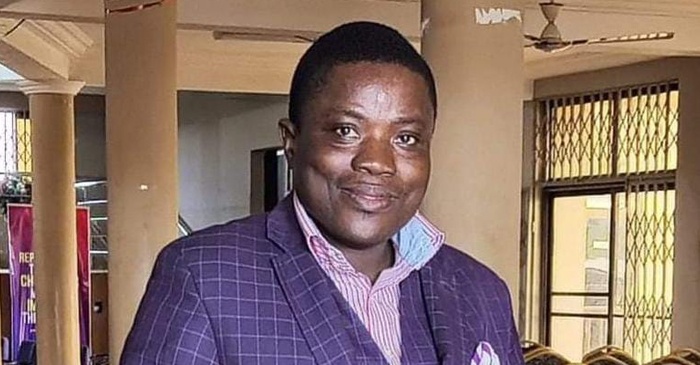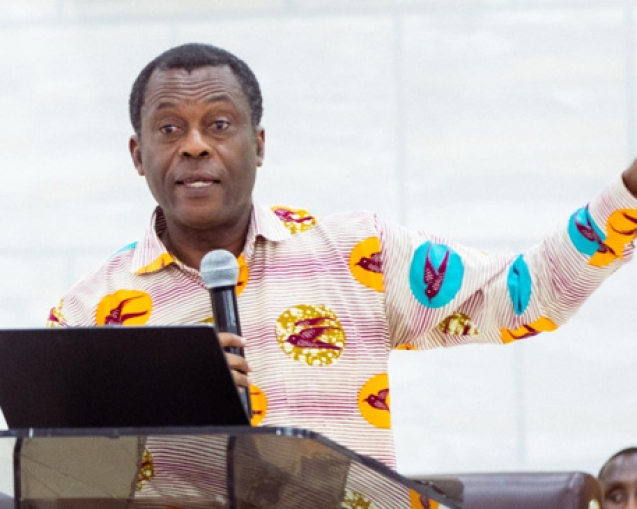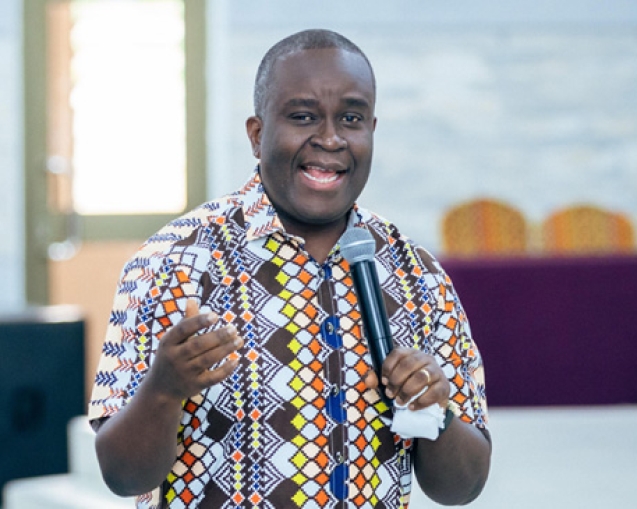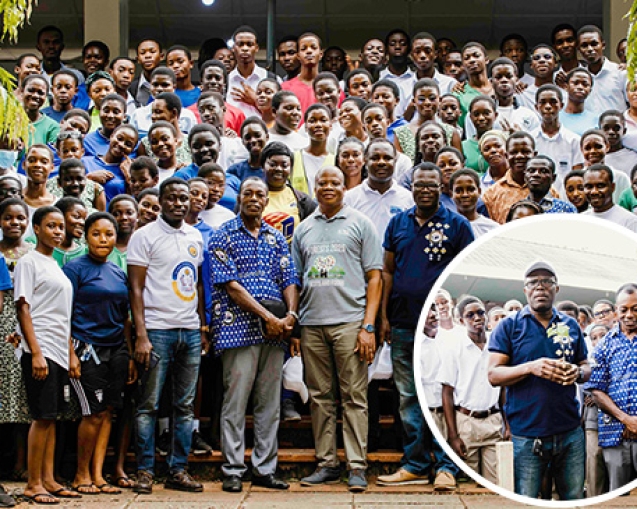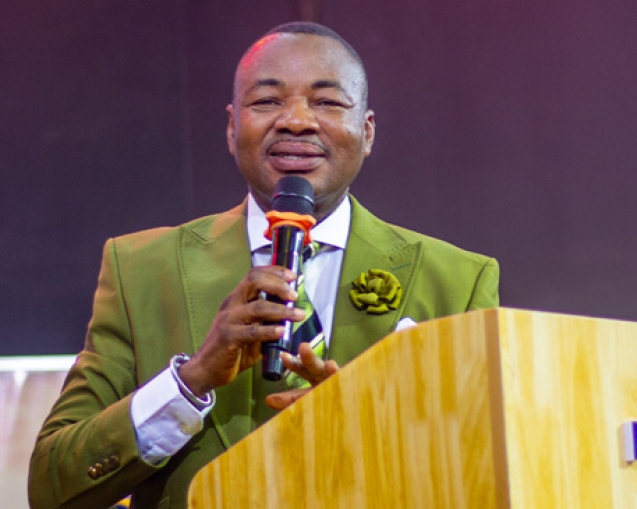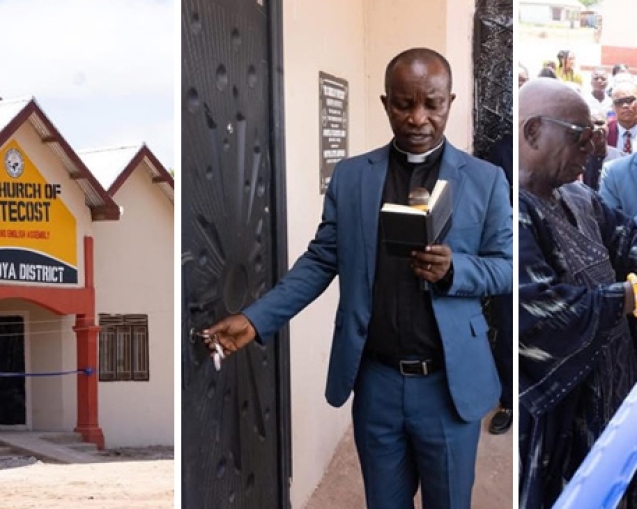The Church and State would have been an anathema a few centuries back. The right expression then was the Church-state. It was the era where the Church was the State and the State was the Church. The two were in matrimony of polity to ensure the moral fibre and divine development of state and order in the Church and fellowship of all. Along history lane, the intimacy was relaxed and the Church-state phrase changed just as the relationship changed. It became the church and state. Unfortunately, the church and state romance was overtaken by events and the two lovers drifted farther apart.
In Contemporary times, it seems the Church has stood aloof as politicians took the burden of managing nations and that came with the loss of the solid role of the church in the state. It thus should be heart-warming to hear that The Church of Pentecost leadership has decided to partner politicians and other stakeholders in the Ghanaian community to look at how best a moral consciousness and national development agenda could be set both by the religious organisations on one hand and political and social players on the other. Howbeit noble as it is, some have taken the church on for meddling into politics. The question is, should not the state be as interested in the politics of the nation as politicians are as keen in taking power?
Any student of politics knows the historical antecedents to political activism has always had the Church as an interested party. From time in memorial, God had intended rulers and priest to partner in nation building. When Israel, the nation God chose to show His grace and virtue to all nations (Genesis 12:2–3, Isaiah 49:6) was just about starting off as a nation, God made that overtly seen. He called Moses who was a prophet to the people to lead His nation out of Egypt and Aaron was to be the priest of the nation. The two were to be two sides of the same coin. When Moses had returned to Israel, it was him and Aaron who gathered the people together. The chosen leader of the people and the later to be ordained priest met the people together. Aaron spoke God’s word and that led to the acceptance of Moses’ leadership (Exodus 4:29–31). Pharaoh in fighting to hold on to his slaves also involved his priests. It was not an assignment for only the politician but also the priests.
Years later, when the national Israel had settled in the promise land, it was the Prophet Samuel who exercised both political and priesthood mandate. Obviously, a people needed to be led just as they needed to hear from God. Even when they had asked for a king and God granted that request, the role of the priesthood in nation building was never discarded. The king could not go to war when the priest had not finally authorised it (1 Samuel 13:8–14) and when the king was at fault, it was the mandate of the priest /prophet to point that out (2 Samuel 12). Again, the priest was the voice that pleaded on behalf of the people’s sins (Numbers 25:6–11) or revealed the future plans of God to the people (Genesis 41, Amos 9:11–12). The priest bore the sins of the nation up before God for forgiveness.
We see the role Daniel and his friends played in nation building in Babylon (Daniel 1:17–21). Joseph (Genesis 41:25–42), Nehemiah (Nehemiah 2:9–20), Amos and other prophets addressed political and social concerns of their time. The worked hand in hand with those in power to ensure national cohesion and nation building).
In the New Testament, we see again the relationship between state and church. The Lord Jesus Christ and John Baptist also addressed political and social concerns of their time (Mark 12:13–17, Mark 11:17, john 6:15, Mark 6:17–26) Even at the crucifixion trial, the state and church had to come together to pass judgement on the Saviour (John 18:28–29).
It is abundantly clear from the Bible that the state cannot do without the Church because apart from her being God’s representative on earth, the church is a voice of conscience for political actors, helper in development, broker of peace and bearer of the people before God. No nation can do without the religious aspect of nation building no matter how secular it professes to be. God has ordained that His presence be felt among every nation and He continuous to show Himself great in the affairs of humanity in nation building. People may do their best to ignore this fact but it is as truth as their breath. For those who try to doubt the existence of God, they ignorantly do so to doubt their own existence. For if even a statue is the artistic and creative work of a man, how much more would that man not be the creative and artistic work of a Greater Man – God!
From the first Century, the relation between state and church became more profound. God’s people had spoken against abuse of power, corruption, evil, and attempted to redirect the heart of the nations and rulers to God just as in the Old Testament and New Testament. During the middle ages, the Church had a cordial relationship with the State and the divine right of kings where the monarchy ruled by the authority of God was derived. The church’s influence was great and had a major role in the coronation of kings. We were blessed this year to witness this during the coronation of King Charles of Great Britain.
In the colonial era in British North America, morality and social harmony and political stability was possible due to the alliances between the Church and government. When there is peace in the nation and the people prosper, the Church thrives and religious freedom in enhanced.
On the issue of the Church’s interest in enacting laws, again, history is on the part of the Church. Many laws including the core of fundamental human right laws were picked from scripture. The early Christians understood the need for Christian participation in government and nation building. The apostle Paul urges us as Christians to ‘first of all, that requests, prayers, intercession, thanksgiving be made for everyone, for kings and those in authority that we may live peaceful and quiet lives in all godliness and holiness. This is good and pleases our God and Saviour who wants all men to come to a knowledge of the truth’ (1 Timothy 2:1). The Scripture and history emphatically support the Church’s place and role in affairs of the State.
The church has been at the forefront assisting the state to fight social injustice, poverty and healthcare. In Ghana, it took the Church (missionaries) for education and healthcare to be made available and not the politicians and merchants who were interested in the wealth of the people and exploration of the world. Anyone reading this and disparaging the Church should rather bless God for the light of the Church. Many of our health and educational institutions today are still testament of the great work of the Church. Without the Church, the state of Ghana cannot do it alone.
The Church as a social partner of the State has at times been critical of the State just as the state too has been of the Church. The Church recognises political authority because the Bible injuncts her to do so (Romans 13:1–7). This does not debar the church from being constructively critical of state actors when they deviate from what is acceptable. However, it is done with utmost respect for the office they occupy. For those who think the Church has been too silent, her silent outside is so loud in the indoors of the corridors of power. But for the Church, alas!
The Church of Pentecost, and for that matter the Church, has proved to be a formidable partner of the state in development. After building schools, hospitals, social amenities, providing support to the state for security and peace in the form of police stations, barracks, prison to name but a few, the Church has every right to have a say in national development. Let it not be lost on us that the citizens of the State are the members of the Church. We are in this ship together and must work out the sail together. It is in this light that we must all support this two-day conference and thank God that this is not political parties calling but the non-aligned Church calling all the sons and daughters of the land to come and let us reason (Isaiah 1:18).
The relationship between Church and State is that of ‘hand go, hand come’. Governments have a huge influence on the work of the Church. When there is peace, the Church thrives, where the State and Church have cordial relationship, persecution and evil laws that gag religious activities are alienated.
In many instances when the State has lost its providential way, the Church has served as a beacon of hope and reasserting her influence and redemptive role over the State. Martin Luther King Jr., a pastor, was the lead figure in the civil rights movement against racial segregation and discrimination. The abolition of slave trade was led by a committed Christian, among many other Christians could be listed for their fight for justice, progress and development of nations. Carl Henry is quoted to have said ‘Christians should work through civil authority for the advancement of justice and human good’ This has been the historic role of the Church in issues of the State, and this must not die but be resurrected.
Jeremiah 29:7 says ‘But seek the welfare of the city where I have sent you, and pray to the Lord on its behalf, for in its welfare you will find your welfare’. This is still true. The church is set in Ghana and her welfare is tied to that of the State. The possessing the nations agenda can be furthered through when the State flourishes. What else is beautiful than seeking this, and if CoP provides a platform for that, in what has the church erred but to be commended!
As the first of its kind, those who are sceptical about the National Development Conference at the behest of The Church of Pentecost should hold their breath while we all monitor the progress from here. What we need now is a total commitment to this engagement by all stakeholders and adherence to whatever working document that will come out of this conference. It must not end as one of such talk shops but one that will redefine the polity of our politics as a nation and birth policies that will be owned by all whether the day party or the night party is in power. All the groups, religious, political, civil society groups, technocrats, educators, etc. are commended for their commitment to the enterprise Ghana. Let us own our development and work at our moral consciousness as a nation. The fibre must not be allowed to decay further.
It is an exciting time for both Church and State. Once it is The Church of Pentecost leading this charge, let us all look forward to something amazing. Nyame nsa wɔm.
Written by Pastor George Osei-Asiedu






